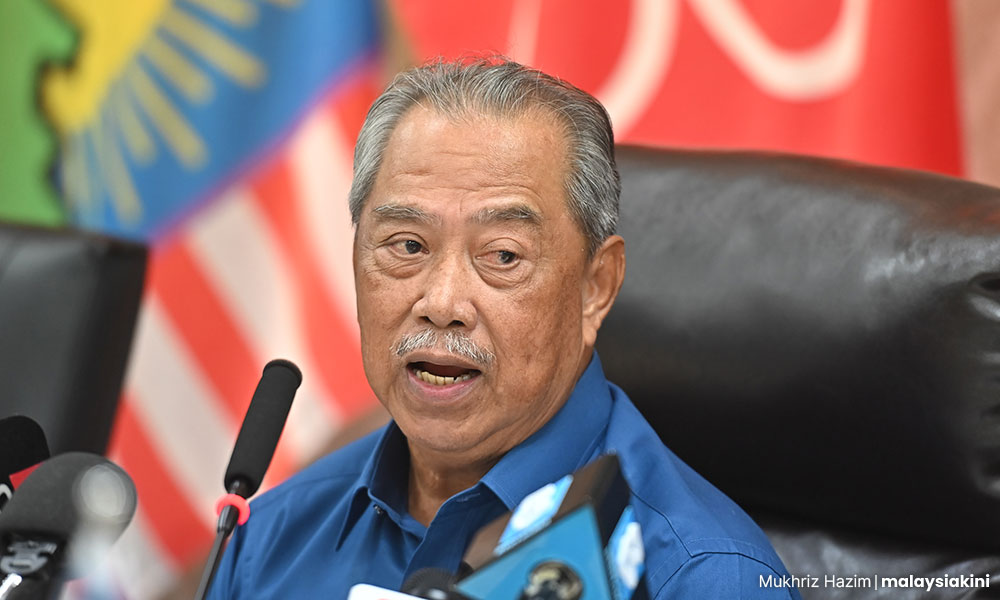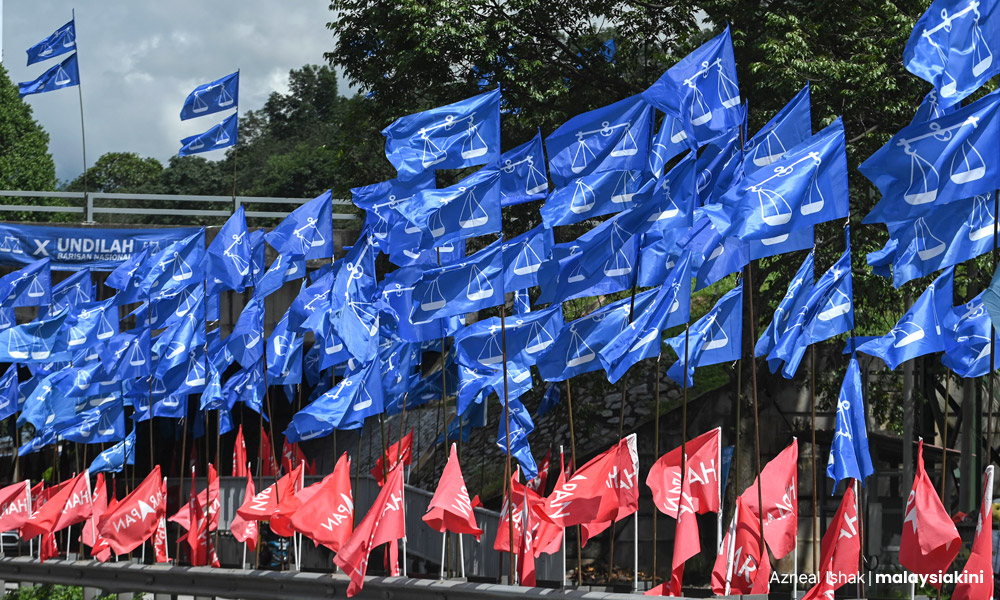COMMENT | An article by Marzuki Mohamad and Khairul Syakirin Zulkifli of Institut Masa Depan Malaysia (Institut MASA) raises more questions than answers about the upcoming state election in Selangor
I refer to the article written by Marzuki (above) and Khairul Syakirin which was published as a 'Perspective' piece with the title 'Why Perikatan Nasional may win in Selangor” by the ISEAS-Yusof Ishak Institute (ISEAS) last week.
For full disclosure, I am currently a senior visiting fellow at the same institute and ISEAS will publish a 'Perspective' article written by me, entitled 'Malaysia’s 2023 state elections (part one): Projections and Scenarios”, later this week.
In the interest of academic and public discourse, I would like to raise a few pertinent questions with regard to the survey data that was used as the basis for this article as well as to point to a few important gaps in the analysis presented in the article.
It is interesting to note that Marzuki, an associate professor at the International Islamic University Malaysia (IIUM), chooses not to state the fact that he is the former principal private secretary to the eighth prime minister, Muhyiddin Yassin, in this article while his affiliation is clearly stated in a previous Perspective piece written by himself and Ibrahim Suffian, executive director of the Merdeka Center, published on March 24.
(Screenshots of Marzuki’s affiliations in the two ISEAS perspective pieces are reproduced below.)


The omission of Marzuki’s affiliation to Muhyiddin is an important one because the recent article on the prospects of Perikatan Nasional in the upcoming state election in Selangor seems to give the impression that it was written by impartial researchers when, in fact, this is not the case.

Not only is Marzuki a close confidante of the former prime minister, the think tank which conducted the survey for the recent article – Institut Masa Depan Malaysia (MASA) – he is also linked to Muhyiddin.
Muhyiddin is the chairperson of Institut MASA; Mohd Radzi Jidin, Putrajaya MP and Bersatu vice-president, is a member of the board of trustees as is Mohd Nardin Haji Awang, former political secretary to Muhyiddin when he was the deputy prime minister, education minister, and home minister.
This is not to say that a politically linked think tank like MASA cannot produce politically independent outputs. But in the interest of public transparency, these affiliations should be stated clearly by the authors, especially in articles which may seek to affect the electoral landscape in Malaysia.
(For the record, I have written to ISEAS to request that my affiliation as a former MP representing the DAP be included in the upcoming Perspective articles which discuss the state elections.)
Marzuki’s political affiliation aside, here are a set of questions with regard to the survey conducted by MASA that forms the basis of the recent Perspective article:
Firstly, the authors stated that it “collected 1,200 samples across ethnic groups in 39 Malay-majority state seats in Selangor in order to explore the dynamics of voting behaviour with a special focus on vote transferability among Malay voters”.
Lack of clarity
But the paper only examined a sub-sample of 850 Malay voters. The authors never explained how and why this sub-sample of 850 was chosen. Was it because the data for the other 350 samples was “tainted”? Was it because the authors wanted to keep the sample of 350 to validate their hypothesis on possible vote transferability?
The lack of clarity on how and why this smaller sub-sample was chosen inevitably raises questions on the accuracy of the arguments made in this paper.
Secondly, one should question why the authors did not attempt to conduct any quantitative analysis of the survey data to test some of the hypotheses and arguments put forward in the article.
For example, the authors could have run some simple regressions to find out if those BN Malay voters who were “unsure” of who to vote for in the upcoming state elections were more or less likely to have favourable ratings for Anwar Ibrahim, Muhyiddin, or Ahmad Zahid Hamidi to test the hypothesis that it is an "unwritten rule of thumb for Malaysian pollsters to allocate to the opposition parties a greater percentage in the 'unsure voters' category for a few reasons".
Such quantitative analysis would have provided more substantive evidence of the arguments which the authors were making in this paper.

Thirdly, one should most definitely question why the authors did not try to simulate the expected election results in Selangor using the vote transferability data it collected among the Malay voters.
Such a simulation would definitely have helped clarify the hypothesis on ‘Why Perikatan Nasional may win in Selangor’, which is the title of this recent article One of the reasons why the authors did not conduct such a simulation could be because they totally ignore the impact of the vote transferability of non-Malay voters in Selangor.
While the vote transferability of the Malay voters from BN to Pakatan Harapan and from Harapan to BN will be crucial in determining the eventual winners in the 39 Malay majority seats in Selangor, one should not forget the influence of the votes of the 30 percent of non-Malay voters in these seats.
In marginal seats, a high vote transferability among these voters from Harapan to BN may be key to ensuring victory for some of the BN candidates. At the same time, even a relatively low level of vote transfer from BN to Harapan may not be sufficient for Perikatan Nasional to win some of the Malay majority seats because of the electoral margins currently enjoyed by Harapan in Selangor.
Electoral campaign
Apart from the questions above, there are many areas and points raised in this paper which I happen to agree with. The fact that almost half of the Malay voters who supported BN and Harapan in GE15 were unsure if they would transfer their support to Harapan and BN respectively in the upcoming state elections is consistent with the findings of one other survey report which I have encountered recently.
This means that the two-week electoral campaign from July 29 to Aug 11 will be very important in determining the eventual outcome of the elections including for an important state like Selangor.
I look forward to discussing the points raised in my statement with Marzuki in an upcoming webinar organised by ISEAS that will take place on July 25 (details will be published on the ISEAS website).
It will be good to have a public debate based on issues and figures in a spirit of mutual respect as opposed to the prevailing atmosphere of divisive politics which we have observed so far in the run-up to the state elections.
ONG KIAN MING is a former Bangi MP.
The views expressed here are those of the author/contributor and do not necessarily represent the views of Malaysiakini.





